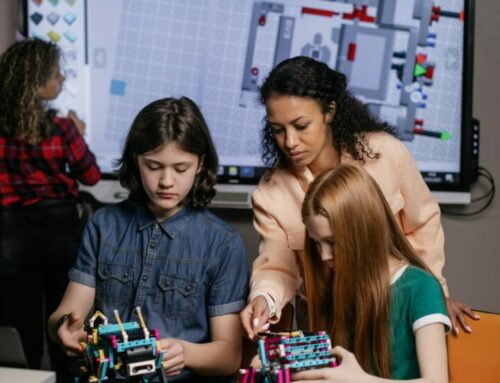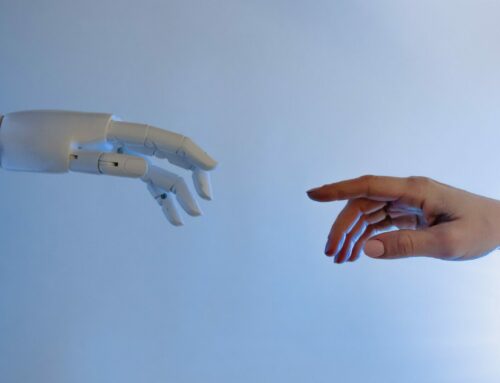This article first appeared in University World News
Education 4.0 and its key role in sustainable development
Patrick Blessinger, Ahmad Samarji and Haydeé Ramírez Lozada
Since the First Industrial Revolution (circa 1800), humanity has experienced several major waves of political, economic, social, technological, and environmental development. These major waves of development have come to be termed 1.0, 2.0, 3.0, and 4.0 as a way of classifying the major turning points since the First Industrial Revolution.
Many people believe that the world is now experiencing a fourth wave (4.0) of development. Thus, in the fourth wave, Education 4.0 coincides with Globalisation 4.0, Industry 4.0, Society 4.0, Web 4.0, and Environment 4.0. This broad system of classification can serve as a useful mental model to bring clarity to the key factors driving global development.
Globalisation 4.0 is characterised by hyper-connectivity and the rapid (or instantaneous) movement of goods, capital, energy, people, and information as a result of advanced interconnected supply chains, transportation systems, financial systems, and communication systems.
Industry 4.0 is characterised by advanced integration of digital, physical, and biological systems including, among others, artificial intelligence and human-machine interfaces.
Society 4.0 is characterised by the development of a new humanistic value system and social contract that puts the well-being of people and the planet first and that creates hyper-intelligent systems that co-evolve in the service of humanity and the planet.
Web 4.0 (the symbiotic web) is characterised as the internet of things, an electronic space where humans and machines will interact effortlessly through AI interfaces and highly intelligent self-learning systems.
Environment 4.0 makes use of emerging innovations such as blockchain, big data analytics, drones, artificial intelligence, and other technologies and processes in order to create a fully circular economy that protects and regenerates the environment, eliminates pollution and greenhouse emissions, implements economy-wide renewable energies and achieves the Sustainable Development Goals.
Environment 4.0 also brings with it many ethical concerns related to assisted evolution, ecological restoration, and species de-extinction, among others.
Education for human development
Although the first human civilisations started about 10,000 years ago, it was not until the 19th century that the idea of universal, compulsory public education (that is, common schools) began to take traction.
Before common schools became pervasive across nations, children who were educated were done so mainly through a mixture of private and religious schools or through private tutoring, which meant that basic education was available to just those families who could afford it.
In 1900, the global literacy rate was about 20%. During the first half of the 20th century, with the adoption of basic universal education, the literacy rate increased dramatically around the world.
For example, it was not until the latter part of the 19th century that primary school became freely available to all children across the United States, and it was not until the mid-20th century that secondary school attendance became commonplace across the United States. In 1970, only 55% of students attending high school in the United States completed their studies.
Over the past 150 years, many laws and court decisions have been enacted in order to bring basic education to all children, regardless of race, gender, socio-economic class, disability, or any other factor.
Although basic literacy in reading, writing, and mathematics is still a critical part of schooling, today’s basic education system has advanced far beyond those foundational subjects. The demands of the modern era require more sophisticated forms of human development at all levels of education.
Today’s education system must, therefore, develop students into self-regulating lifelong learners who can readily adapt to a rapidly changing world. As such, not only must learners master the core subjects, but they must also know how to work with others across disciplines to solve increasingly complex problems.
In essence, today’s learners must be both specialists and generalists.
Education 4.0
Using the system of classification described above, global education has entered into its fourth wave of development (Education 4.0) (circa 2015 to present).
As a result of the massive and ubiquitous changes occurring in the political, economic, social, technological and environmental spheres, the fourth wave of development is characterised by several intertwined factors, including diversity, equity, inclusion, complexity, uncertainty, risk, and hyper-connectivity.
As such, creative learning, lifelong learning, inter- or transdisciplinary learning and personalised student-centred learning based on humanistic values lie at the heart of Education 4.0.
Because these spheres are interconnected and interdependent due to globalisation, what happens in one sphere usually impacts on the other spheres. As such, education at all levels, as with anything else, must be contextualised and adapted to the environment in which it operates.
For instance, UNESCO believes that higher education should reorient its mission, vision and values along three interrelated themes: 1) the need to develop interdisciplinary and transdisciplinary teaching, learning, and research; 2) the need to become fully open institutions by focusing on diversity, equity, inclusion, and humanistic values; and 3) the need to take a more active role in society by partnering with other institutions to serve the interests of the common good.
Education 4.0 cannot be isolated from changes occurring around the world. In its fourth wave, education, at all levels, needs to be more flexible and dynamic to respond to emergencies (for example, the COVID-19 pandemic), where distance education has been a “forced choice” rather than a pedagogical option.
Instructors’, teachers’, and students’ technological skills continue to develop around distance education and online learning communities. In its fourth wave, educational policies, curricular, pedagogical, and assessment practices must reflect the demands, opportunities, and realities of the modern era.
Transformative leadership
Educational institutions have a social obligation to prepare students for the society and workplace of the future.
Students of the future must not only be equipped with foundational knowledge (the lowest level of Bloom’s taxonomy, which classifies educational learning objectives into levels of complexity and specificity) but they must also master higher-order thinking skills (the highest level of Bloom’s taxonomy) so that they are more adept at solving the world’s most pressing concerns of the future.
To achieve this type of institutional transformation, education leaders should be bold in their vision and in their actions. This type of transformation requires a transformative and inclusive mindset – a mindset that is better suited to the realities of the emerging world.
As humanity moves deeper into the 21st century, it will become increasingly important that the political, economic, social, technological, and environmental spheres work more harmoniously in order to address some of the most intractable problems facing the world.
By better understanding the forces acting on the world, and adjusting our educational systems accordingly, humanity will be better able to create a more sustainable planet for future generations and, ultimately, a more prosperous and peaceful future for all.
Our educational systems need strategies to facilitate efficient, effective, and sustainable shifts, transformations, and transitions to adjust to the many expected and unexpected changes. It is more important than ever that, in such an era of transformative leadership, students’ voices be heard as future leaders and transformers of society.
In a very rapidly changing world characterised by many anticipated and unforeseen variables, one of the main roles of transformative leadership is to create avenues of certainties during uncertain times.
The future of the world will depend, in large measure, on the world adopting a new mindset based on justice and rights at all levels (human, animal, and environmental), which puts the welfare of the planet as a top priority.
To that end, education, in the fourth wave, will play a critical role in helping to mainstream sustainable development around the world.
Patrick Blessinger is president and chief scientist for the International Higher Education Teaching and Learning Association, USA. Ahmad Samarji is dean of the College of Arts and Sciences and associate professor in STEM education, Phoenicia University. Haydeé Ramírez Lozada is a teacher-researcher at the Pontificia Universidad Católica del Ecuador, Esmeraldas.
Suggested Citation:
Blessinger, P., Samarji, A., and Lozada, H.R. (2022). Education 4.0 and its key role in sustainable development. University World News, https://www.universityworldnews.com/post.php?story=20220706155955415
or
Blessinger, P., Samarji, A., and Lozada, H.R. (2022). Education 4.0 and its key role in sustainable development. Higher Education Tomorrow, Volume 8, Article 8, https://www.patrickblessinger.com/education-40-and-its-key-role-in-sustainable-development
Copyright © [2022] Patrick Blessinger, Ahmad Samarji, and Haydeé Ramírez Lozada
Disclaimer
Opinions expressed in this article are those of the author, and as such do not necessarily represent the position(s) of other professionals or any institution.




